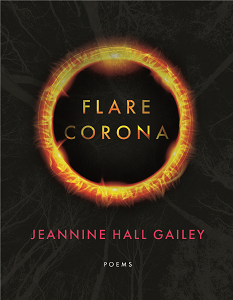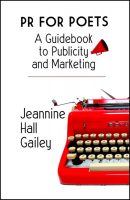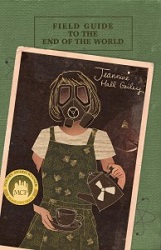Poetry Samples
For a more complete list of recorded readings by Jeannine Hall Gailey, see the audio and video samples page.
Martha Stewart’s Guide to the End Times
Of course you know I love those little drones, so I’ve stockpiled them. Those and lemons. I’ve learned the hard way that life without lemons is barely worth living.
Animal husbandry 101: Fill your own organic pantry. Which breed of chicken will give you the best eggs under stress? Pg. 13.
Leave the fondant til later. You can always do a ganache topping for your cupcakes in a pinch. So simple!
Evacuation map for New York City, Boston, the Hamptons, with scratch-and-sniff icons: page 24.
Survival skills are just like hostess skills: a little preparation, a little spying (with the drones,) a little determined defense-driven hedging of the grounds. Razor wire goes beautifully with your holly thicket.
Guide to storing munitions in attractive wicker boxes: page 52.
If your water isn’t as clear as it should be, use up those charcoal filters first, but after, try a solid iodine tablet in your home-dug well. In these times, it’s a good thing.
Culinary tips for after the mega-store raid: mixed nuts have a long shelf life. Throw in a little rosemary and toast them over an open flame for anytime elegance. More ideas for those family-sized tubs of popcorn: page 68.
Now’s the time to get out your hurricane lamps! They create a lovely glow in these last days.
Featured in Field Guide to the End of the World.
Zombie Stripper Clones: They Are Not Regenerating
We are not zombies, thrown into a pool
of dubious origin and coming back beautiful
but decaying
unsure of how to live – pretending to swim,
eat yogurt like regular girls.We are not clones, despite being drawn to specifications
(36-26-36) and bearing bouffants and bikinis
we might hack each other to pieces
but we are not confused about our identities(living or not living) we continue
in this shape we were given
our cells cannot regenerate and the scientist
names us “Dead”
we are not regenerating we cannot reproduce ourselves we cannot be anything
but the fulfillment of your fantasy, flesh-eating or not.
Featured in Field Guide to the End of the World.
Introduction to Witchcraft
Always these young women in search of power,
their eyes rolled back in their heads, midriffs exposed.
Always some girl with a candle in a dark room –
and poof, her face brightens as she achieves
some moment of bliss. The raindrops around her freezein midair, the wolves stop baring their fangs, and for a moment
the young girl marvels at her own invincibility.
But then it’s fire, fire, always someone with a stake or a knife
ready to do her in. She is a spark about to go out.
Featured in Field Guide to the End of the World.
Introduction to Teen Girl Vampires
turn feral while defending their human boyfriends, harmless and blond
in Varsity jackets and crewcuts. These girls just want to be loved, and fed,in that order, and can we blame them? A nurse here or there won’t be missed,
or the guy playing “second policeman.” Bram Stoker equated blood and sex,Mina chaste and clever while hunting her Dracula down, his bite awaking
impulses that ignited and were ignored. These days, teen vampire girls enjoy sexwith abandon, tossing lovers around like tree limbs. These days, the girl
doesn’t succumb to the monster, she is the monster, teeth gleaming in the moonlight,coquettish limbs and curls masking superpowers. Oh, she still wants to be
the prettiest girl at the prom, and perhaps she mourns some future ideaof motherhood. But men line up for the promise of her bite, her blood.
And she has nothing to fear; she cannot be broken, tarnished by age, her heartimpenetrable to anything except for that wooden stake.
Featured in Hobble Creek Review and Field Guide to the End of the World.
Introduction to the Body in Fairy Tales
The body is a place of violence. Wolf teeth, amputated hands.
Cover yourself with a cloak of leaves, a coat of a thousand furs,
a paper dress. The dark forest has a code. The witch
sometimes dispenses advice, sometimes eats you for dinner,
sometimes turns your brother to stone.You will become a canary in a castle, but you’ll learn plenty
of songs. Little girl, watch out for old women and young men.
If you don’t stay in your tower you’re bound for trouble.
This too is code. Your body is the tower you long to escape,and all the rotted fruit your babies. The bones in the forest
your memories. The little birds bring you berries.
The pebbles on the trail glow ghostly white.
Featured in the spring 2013 edition of Phantom Drift, and included in both The Best Horror of the Year, vol. 6 and Field Guide to the End of the World.
Cesium Burns Blue
Copper burns green. Sodium yellow,
strontium red. Watch the flaming lights
that blaze across your skies, America –
there are burning satellites
even now being swallowed by your horizon,
the detritus of space programs long defunct,
the hollowed masterpieces of dead scientists.
Someone is lying on a grassy hill,
counting shooting stars,
wondering what happens
when they hit the ground.In my back yard, they lit cesium
to measure the glow.
Hold it in your hand:
foxfire, wormwood, glow worm.
Cesium lights the rain,
absorbed in the skin,
unstable, unstable
dancing away, ticking away
in bones, fingernails, brain.
Sick burns through, burns blue.
Featured by The Cincinnati Review, Winter 2009-2010, and included in The Robot Scientist’s Daughter.
I Forgot to Tell You the Most Important Part…
Without this knowledge, you’ll never make it:
it’s one part fashion advice and two parts survivalist.
Learn to talk to people so they think you’re honest
but never be honest. Cooking eggs may save your life,
so crack them, neat and firm, pour into the skillet,
stir gently. Forget about your shoes; people will judge
you by your shine, the imminent light you offer them.
Be a lamppost in wilderness, be the elephant
in the showroom. If you steal the idol, make sure
to carry a weighted bag of sand. No surprises: we’ve lied
about having it all. It’s either the piano or the pit viper.
Cinderella’s shoe came off at midnight because it hurt,
and Red Riding Hood’s real story involves cannibalism and a striptease.
Don’t wear red lipstick, don’t you kiss your mother with that mouth?
Long bangs hide a multitude of sins. Ask your grandmother
about the herbs she used to swallow while pregnant.
The butterflies here didn’t start out black, they were white
as onion skin—and the forest was more ominous
before the smokestacks. Well, here’s your little basket
and coat, sweetheart, sweetmeat, smile like you mean it,
shake what you’ve got while you’ve got it,
go out into the world and knock them dead.
Published in Rattle #33, Summer 2010, and included in Unexplained Fevers.
Sleeping Beauty Love the Needle
No thread in your needle, just the spindling
damselflies dart through cracks in the ceiling.
The bird at the window tells you to drop the gun,
put on your nightgown and drown. This bird holds
a branch of judgment and tells you you’ll be the one
standing with a sword when the stars rain down.
She pressed her face to the pillow. She fell
for the hired gun. She ended up hungry, an angel.
Her two white feet cold as her heart, while
her pages all ran clean. No more time for kindling,
sweetheart, better make that fire sing.
Published in Prick of the Spindle Magazine and included in Unexplained Fevers.
Don’t Bring Me to the Fireworks, The Fox-Wife Asks
They hurt my ears, make me run in circles. Under their chemical light you might see my non-human face, the tail I hide beneath skirts. In the city, under mercury vapor, you never see me clearly. I prefer the woods, the quiet howl of mosquitoes, of cicadas. Build me a hut of mud where we never see the stars, too bright. Bring me fans painted with cranes and peonies, poetry folded into birds. Don’t leave me in the crowd, my nose assaulted by too many scents. Let us stay far from others tonight, my love. Our celebrations will be fur and paw, hand to chest. Let the fireworks with their dizzy ghost spiders whine in the distance, keep me here, bring me silk kimonos the color of bark and dirt to nest in.
Keep the copper smoke
and saltpeter, the dim trails
of chrysanthemums in the sky.
Included in She Returns to the Floating World.
My Little Brother Learns Japanese
In college, he learns to read
right to left,
practicing with Manga,
learns Kanji picture-words:
how the word for heart
can also mean indigo blue.He learns to conjugate
verbs with no future,
and reads poetry that does not
begin with “I.” He learns about weather reports
of sakura zensen,
the advance of cherry-blossom fronts
and finds that falling blossoms
can also mean dead soldiers.He knows the word for bird
by its feet, and knows
a village connects hands to trees.
Little brother is a student,
and older sister
is a woman going to the city.He learns in Japanese fairy tales
that siblings, not spouses,
are often saviors;
the older sister brings the dead brother
back to life
over and over again.
For Mike, Watashi wa otouto ga daisuki desu. Included in She Returns to the Floating World.
The Husband Tries to Write to the Disappearing Wife
I could have kept you
in the palm of my hand,
but you weren’t ready.I know I have lost
your body, dissolved into
particles, swirlinglike birdsong. I should
have known when I started
sweeping twigs and bitsof fur and feather
off our floors, when our baby
liked nothing betterthan chewing beetles.
Our bargain was never strong
as straw, as autumn’slast light, easily
shattered. Why is it I want
to carve you intomy palm, from pain
into memory, that I sit up
night after nightrecreating – first,
the moon and moth, the white shrine –
your eyes, too brightto be human. The songs
I write start with your hair but
end with your heart.No poetry seems right
without your crooked smile.
Without the scrapeof your sharp teeth
against my lips, there is
no word for kiss.
Published in Redactions and featured on Verse Daily in 2007. Included in She Returns to the Floating World.
The Taste of Rust in August
Knoxville afternoons in summer, lightning on the air.
The horses whinny, nervous; the chickens roost.Our chain-link fence is rusty. I like to taste it –
that metallic clean I imagine to be the flavorof lightning. My brother was hit once, carrying
a metal bucket to water the animals. It burnedhis arm, and left a funny taste in his mouth.
Mother says I have always sucked on spoons,licked lampposts, iron grates, jewelry.
She goes crazy about the germs.She says I do it because of what she calls iron-poor blood
and it’s true—there’s no rust in my skin at all,dull and transparent as wax paper.
I run around the yard for hours, chasing the lightning,tracing those fractal lines in the sky with my fingers
as the smell of ozone drives the dogs crazy.
Published in Pontoon 7, 2004 and featured in She Returns to the Floating World.
Wonder Woman Dreams of the Amazon
I miss the tropes of Paradise—green vines
roped around wrists, jasmine coronets,
the improbably misty clothing of my tribe.I dream of the land where they celebrated
my birth, named me after their patron Goddess.
I was to be a warrior for their kind.I miss my mother, Hippolyta.
In my dreams she wraps me tightly
again in the American flag,warning me, cling to your bracelets,
your magic lasso. Don’t be a fool for men.
She’s always lecturing me, telling menot to leave her. Sometimes she changes
into a doe, and I see my father
shooting her, her blood. Sometimes,in these dreams, it is me who shoots her.
My daily transformation
from prim kitten-bowed suit to bustierwith red-white-and-blue stars
is less disturbing. The invisible jet
makes for clean escapes.The animals are my spies and allies;
inexplicably, snow-feathered doves
appear in my hands. I capture Nazisand Martians with boomerang grace.
When I turn and turn, the music plays louder,
the glow around me burns white-hot,I become everything I was born to be,
the dreams of the mother,
the threat of the father.
Published in American Poetry Journal, Spring 2005 and featured on
Verse Daily, 2007. Included in Becoming the Villainess, and nominated for a Pushcart Prize in 2005.
Becoming the Villainess
A girl—lovelocked, alone—wandered into a forest
where lions and wolves lie in wait.
The girl feeds them caramels from the pockets of her paper dress.
They follow like dogs.Each day she weaves for twelve brothers, twelve golden shirts
twelve pairs of slippers, twelve sets of golden mail.
They set out into the night and return haunted, haggard.
She sleeps under olive trees, praying for rescue.
In her dreams doves fly in circles, crying out her name.For a hundred years she is imprisoned,
turned into a golden bird, hung in a cage
in a witch’s castle. Her brothers are all turned to stone.
She cannot save them, no matter how many witches she burns.
She weeps tears that cannot be heard
but turn to rubies when they hit the ground.
She lifted her hand against the light and it became a feathered wing.She learns the songs of mockingbirds, parakeets, pheasants.
She wanders into the forest more herself.
She seeks her twelve stone brothers.
There is a dragon curled around eggs. There is a princess
who is also a white cat, and a tiny dog she carries in a walnut shell.
She befriends a reindeer who speaks wisdom.
They are all in her corner. It seems unlikely nowthat she will ever return home, or even remember
what it was like there, her mother and father, the promises.
She will adopt a new costume, set up shop in a witch’s castle,
perhaps lure young princes and princesses
to herself, to cure what ails her, her loneliness, her grandeur,
the way her heart has become a stone.
Published in The Evansville Review, Spring 2006, and the title poem of my first book.
The Villainess
resembles your mother, at least around the eyes—
treacherous, limpid and seal-like.
Inevitably handsome as a lioness, she
commands ranks, smokes cigarettes,
wears fur, has sex without apologizing.
Sometimes, she looks just like you,
but with crow’s feet, more tattoos and better lingerie.She conjures dragons or viruses,
she can lie easily to police or to you.
And you must love her, though she betrays you in a heartbeat –
you keep accepting the poisoned comb, the spinning wheel,
with open, pale hands.
Published in The Adirondack Review, Spring 2003. Published in Becoming the Villainess.
My Little Brother, In Parts
Part 1: Assassins
At thirteen, my brother
dreams of becoming a paid assassin.
He mimics violence─tries a roundhouse kick,
barely missing my head, slices an imagined machete,
his lips puckered to exhale explosions.
He sleeps with knives under his pillow.
His eyes remain trained on his computer,
even as we have a conversation.
I watch his little character somersault,
shoot at menacing aliens. “Here, try” he says.
I squeeze the trigger button once, again,
aiming the lasers with terrifying ease,
splattering green extraterrestrial goo
over the buzzing electronic landscape.Part II – Chinese Stars
My brother was caught on the bus today
with Chinese stars, little metal disks
with cunning grooves
designed to catch in flesh.He carries them in the inside pockets
of his jacket and pants. He brags
he’s gotten them through airport customs─twice.
Now I have to drive him to school.He offers to show me how to throw them.
My brother puts the jagged circle in my hand,
showing me how to hold them so I don’t cut myself,
and moves my elbow.The motion’s just like fly-fishing,
graceful and clean. The campy red dragon
smiles back at me from the face of the star,
jaws deep in maple bark.
Published in Can We Have Our Ball Back, Issue 14. Published in Becoming the Villainess.
Alice in Darkness
Forget tears. Chasing
white animals with timepieces
in this drug-trip landscape
can only lead to more of same.
Hedgehogs, playing cards, paintbrushes:
full of undisclosed danger.
Didn’t your mother tell you
not to kiss strangers?
That Cheshire smile shouldn’t fool you.
Pull your skirt down.
Your nails are growing so fast
you’re hardly human.
Alice, fight your version of Bedlam
as long as you can.
Sleep the sweet dream away
from that gooey looking glass, or mushrooms,
or the fear of your own body.
Forget what the night tastes like.
Stop wondering through the shadows,
holding your neck out
for the slice of the axe.
Published in Becoming the Villainess.



 Jeannine Hall Gailey served as the second Poet Laureate of Redmond, Washington and the author of Becoming the Villainess, She Returns to the Floating World, Unexplained Fevers, The Robot Scientist’s Daughter, winner of the Moon City Press Book Prize, Field Guide to the End of the World, and the upcoming Flare, Corona from BOA Editions. She’s also the author of PR for Poets, a Guidebook to Publicity and Marketing. Her work has been featured on NPR’s The Writer’s Almanac, Verse Daily and The Year’s Best Fantasy and Horror. Her poems have appeared in The American Poetry Review, The Iowa Review, and Prairie Schooner.
Jeannine Hall Gailey served as the second Poet Laureate of Redmond, Washington and the author of Becoming the Villainess, She Returns to the Floating World, Unexplained Fevers, The Robot Scientist’s Daughter, winner of the Moon City Press Book Prize, Field Guide to the End of the World, and the upcoming Flare, Corona from BOA Editions. She’s also the author of PR for Poets, a Guidebook to Publicity and Marketing. Her work has been featured on NPR’s The Writer’s Almanac, Verse Daily and The Year’s Best Fantasy and Horror. Her poems have appeared in The American Poetry Review, The Iowa Review, and Prairie Schooner.





